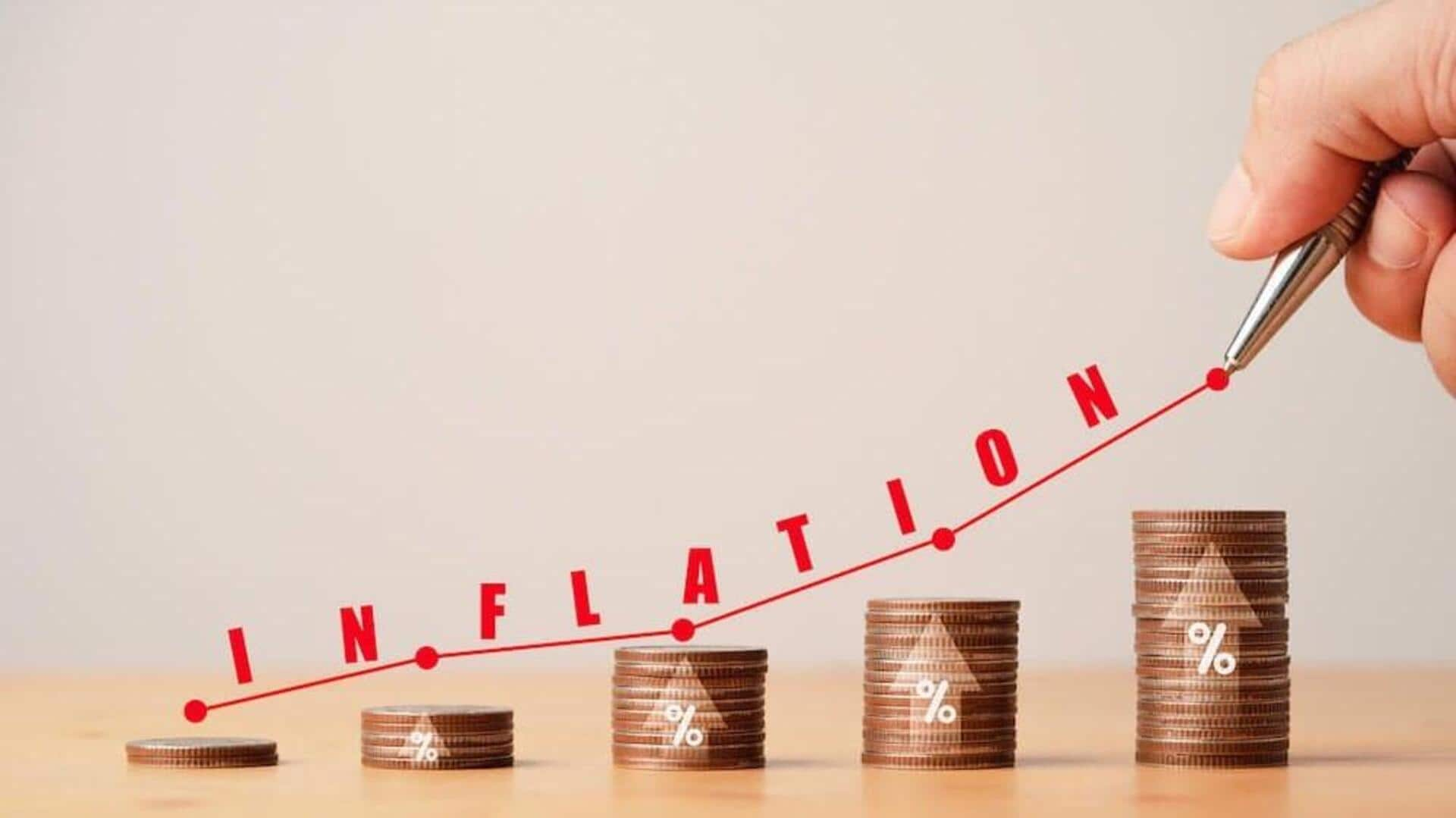
How inflation affects retirement savings and ways to combat it
What's the story
Inflation is a key economic factor that reduces the purchasing power of money over time. For those planning for retirement, it is important to know how inflation affects retirement accounts. As prices rise, the worth of savings may decline, possibly affecting your financial security in retirement. Here are some ways to tackle inflation.
Economic influence
Understanding inflation's role
Inflation is the rate at which the general level of prices for goods and services rises. It reduces purchasing power, i.e., each unit of currency buys fewer goods and services over time. For retirees relying on fixed incomes or savings, this can significantly impact their ability to maintain their standard of living.
Diminishing returns
Impact on savings value
As inflation increases, the real value of savings erodes if returns don't exceed inflation rates. For example, if an account offers a 5% return but inflation stands at 3%, the real return is just 2%. This emphasizes the need for selecting investment options yielding returns greater than inflation rates to protect wealth.
Information
Adjusting investment strategies
To combat inflation's impact, one can also diversify investments across different asset classes. Stocks tend to offer better returns than bonds or cash equivalents during times of high inflation. Adding assets such as real estate or commodities may also prove useful in hedging against rising prices.
Financial assessment
Importance of regular reviews
It's also important to frequently review and alter your retirement portfolio, particularly as the economy changes. By keeping a close watch on how your investments perform and tweaking them at the right time, you can keep your long-term goals in check with your financial strategy. Such a proactive approach can help shield your savings from the impact of rising or falling inflation, keeping your finances stable for the years to come.
Long-term vision
Planning for future needs
Given inflationary pressures, factoring in future expenses and lifestyle changes is essential for effective retirement planning. By accurately estimating healthcare costs, housing needs, and other significant outgoings, individuals can allocate their resources better. This strategic approach makes it easier to maintain financial stability during retirement years and helps retirees manage their finances against the backdrop of rising costs and evolving economic conditions.